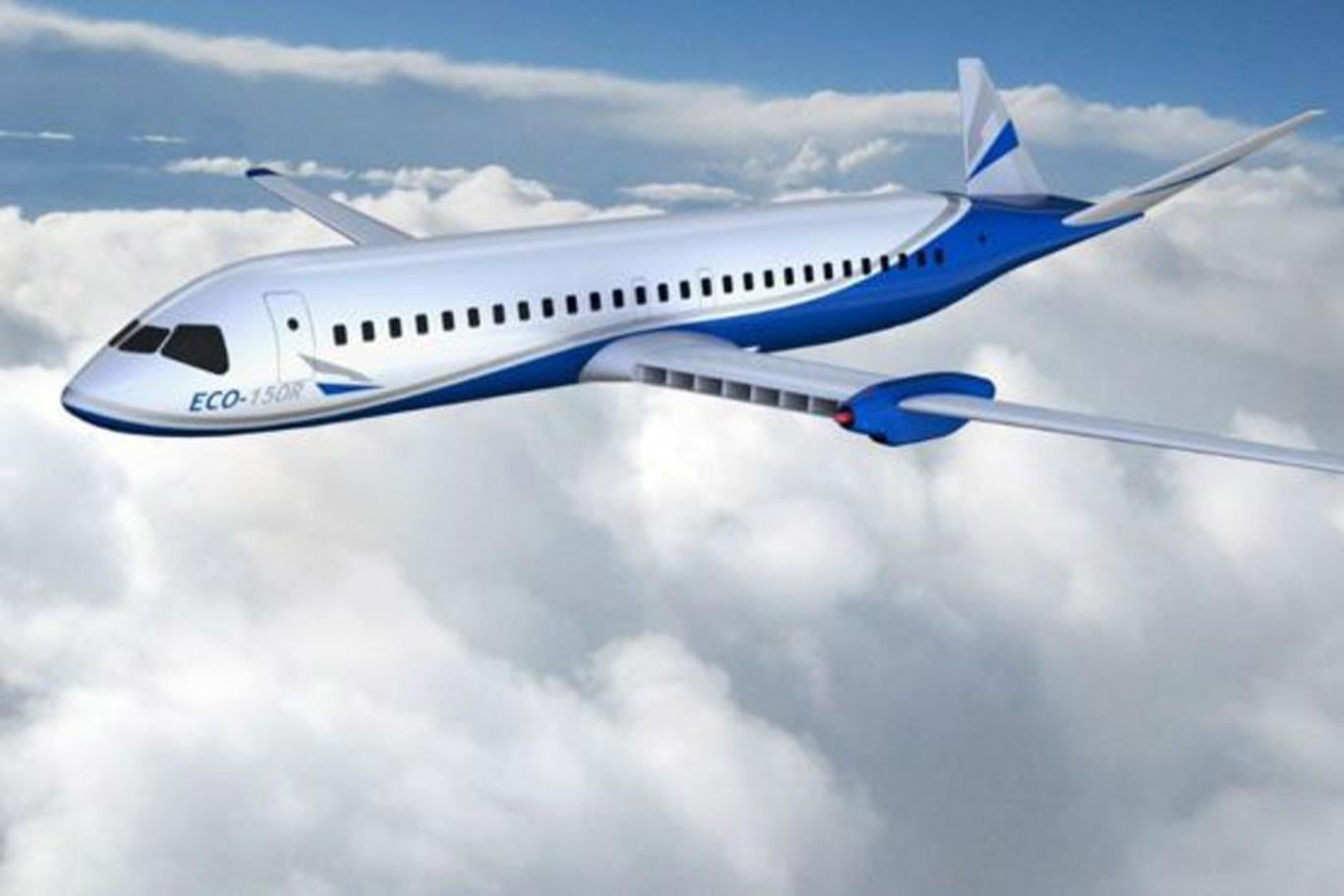EasyJet teams up with eco-friendly electric plane company
Design depends on battery improvements — using current technology, such an aircraft could barely take off

Your support helps us to tell the story
From reproductive rights to climate change to Big Tech, The Independent is on the ground when the story is developing. Whether it's investigating the financials of Elon Musk's pro-Trump PAC or producing our latest documentary, 'The A Word', which shines a light on the American women fighting for reproductive rights, we know how important it is to parse out the facts from the messaging.
At such a critical moment in US history, we need reporters on the ground. Your donation allows us to keep sending journalists to speak to both sides of the story.
The Independent is trusted by Americans across the entire political spectrum. And unlike many other quality news outlets, we choose not to lock Americans out of our reporting and analysis with paywalls. We believe quality journalism should be available to everyone, paid for by those who can afford it.
Your support makes all the difference.In a week when battery-powered electronic devices bigger than a mobile phone were banned from the cabins of dozens of UK- and US-bound planes, an American start-up plans to launch planes powered by stored electricity.
Wright Electric says it aims “for every short flight to be electric within 20 years”, and is seeking investors to help build a 150-seat passenger aircraft capable of flying 300 miles.
The plane is intended to compete with the smaller members of the Airbus A320 and Boeing 737 families.
In order to understand the market, Wright Electric has teamed up with easyJet, Britain’s biggest budget carrier — which currently flies Airbus aircraft with a capacity starting at 156 passengers.
A spokesperson for the airline told The Independent: “easyJet has had discussions with Wright Electric and is actively providing an airline operator's perspective on the development of this exciting technology.”
In its blog, the “Wright Weekly Weport”, the firm says the plane will be “optimised for short flights” — an indication of the profound difficulty to be overcome in battery storage.
The company is assuming that battery technology will continue to improve at the current rate, allowing the weight and volume of batteries to shrink to feasible levels.
Initial designs propose a battery weight of about 25 tons. With present technology, the company acknowledges: “We’d quickly use up all our energy at takeoff and never get anywhere.”
Wright Electric hopes to create a viable aircraft by reducing the cruising speed — not a crucial variable for passengers on shorter flights. But it acknowledges that aviation regulators insist on substantial fuel reserves, “which immediately takes the math from a stretch to a pipe dream”.
“So we’re nowhere close to a commercial plane. But it’s a start,” said the company in its “weport”.
Wright Electric also has a plan B if battery improvements fail to materialise.
“If batteries don’t get dramatically better in the next decade, we design our plane as a hybrid with electric motors.
“It still has great cost savings as compared to today’s planes, and it doesn’t require massive battery advances.”
The company claims three in 10 narrow-body flights are less than 300 miles, It is targeting short, dense routes such as Rio-Sao Paolo, Tokyo-Osaka and the world’s busiest link, from Seoul to the Korean holiday island of Jeju.
Many budget airline routes, especially between the UK and the island of Ireland, are under 300 miles.
Some aviation figures have rejected the timescale aiming at all-electric short flights by 2037 as fanciful.
“Even if the price of fuel goes through the roof in the next 20 years, that will be offset by more efficient planes — the Boeing 737MAX and the A320 NEO,” said a pilot with a budget airline.
However, Wright Electric already claims a potential first customer: “A high-net-worth-individual wants our electric 150-seater as his fifth private jet.”
Join our commenting forum
Join thought-provoking conversations, follow other Independent readers and see their replies
Comments